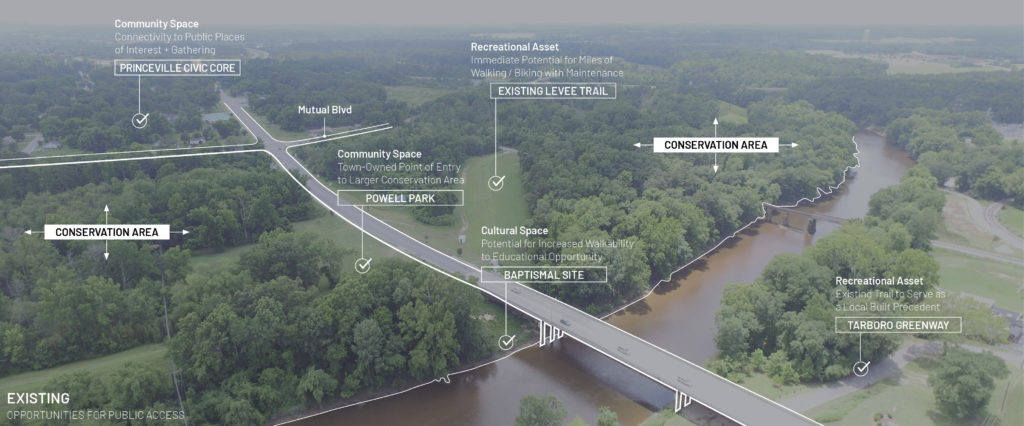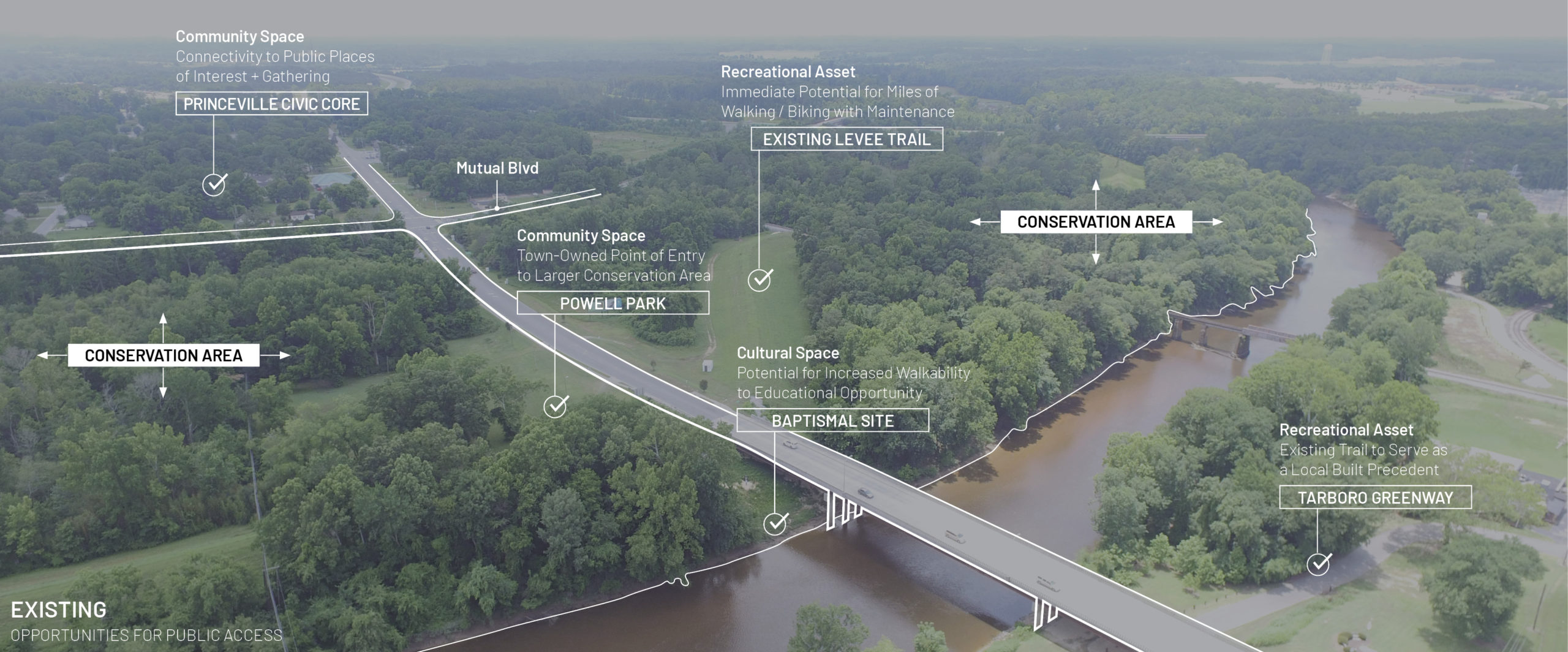
There is even more great news about the Princeville – Seeding Resilience project! 2022 brings many exciting actions to protect this community from the changing climate.
Since the debut of our latest video, this story has captured the attention of conservation champions nationwide. The project was featured in:
- News & Observer – “A history of resilience”
- Spectrum News – “A dry future for the flood-prone town”
- PBS NC & Sci NC – “Resisting the flood”
As we conclude the first phase of executing recommendations outlined in the Princeville Floodprint, the collaboration is turning our attention to Phase II. This phase will further lay the groundwork toward establishing an effective model of community-driven climate change adaptation that can be replicated in communities across the state. Throughout North Carolina, rural communities established along rivers, the coast, and lakes face repeated flood events. With the increasing threat of climate change, more communities will experience these impacts.
Phase II focuses attention toward converting vacant and underutilized land.
The Town of Princeville, North Carolina State University Coastal Dynamics Design Lab, Conservation Corps NC, and Temboo Software will work to complete another round of conservation projects designed to better manage flood and stormwater, establish recreation opportunities for residents, build a model community garden to support locally-grown food operations, and connect youth and adults to environmental education opportunities. This phase focuses on transforming underutilized town-owned lots and property that FEMA has determined to be at risk of future flooding into absorbing flood impact while making them usable spaces for the community.
Over the next two years, this partnership will work to complete:
- Installation of 6,000 square feet of rain gardens and managed wetlands on vacated lots to hold up to 28,000 gallons of water per rain event
- Opening of a 24-bed model community garden on vacated lots to promote local, low-carbon agriculture
- Planting of trees and native plants for 250,000 gallons of water absorption and 2,900 pounds of carbon storage per year
- Creation of trails with educational and health-benefit elements at Princeville’s riverfront Heritage Park
“Our town has already seen the rewards from our collaboration with Conservation Trust, NC State, and all our partners,” said Princeville Town Manager Dr. Glenda Lawrence-Knight. “This next phase will only further prepare our town for the next flooding incident while showing a true investment in the health and well-being of our citizens.”
This is possible in part to a grant from the North American Commission for Environmental Cooperation, supported by the EPA, called EJ4Climate: Environmental Justice and Climate Resilience. This new grant program addresses environmental inequality and promotes community-level innovation and climate adaptation. CTNC was one of 15 projects across three countries to receive a grant award through the Commission for Environmental Cooperation, a tri-national effort to promote and facilitate sustainable development in North America.
In tandem with the on-the-ground work, CTNC and our partners are writing an effective model for building a resilient community. We hope this community-based model can be replicated to benefit others facing similar challenges.
“Communities across North Carolina will benefit from the lessons learned as a result of the partnerships and outcomes in Princeville,” said Andrew Fox, FASLA, PLA of NC State Coastal Dynamics Design Lab. “It’s exciting to see people benefit from the principles that we’ve studied and developed.”
Your support fuels all this work. Together, we can turn the tide for flood-prone communities, and you are the first line of defense.
This work will be carried out with financial support from the Commission for Environmental Cooperation, the Anonymous Trust, and generous donors who have made an investment in resilience through CTNC and our partners.

